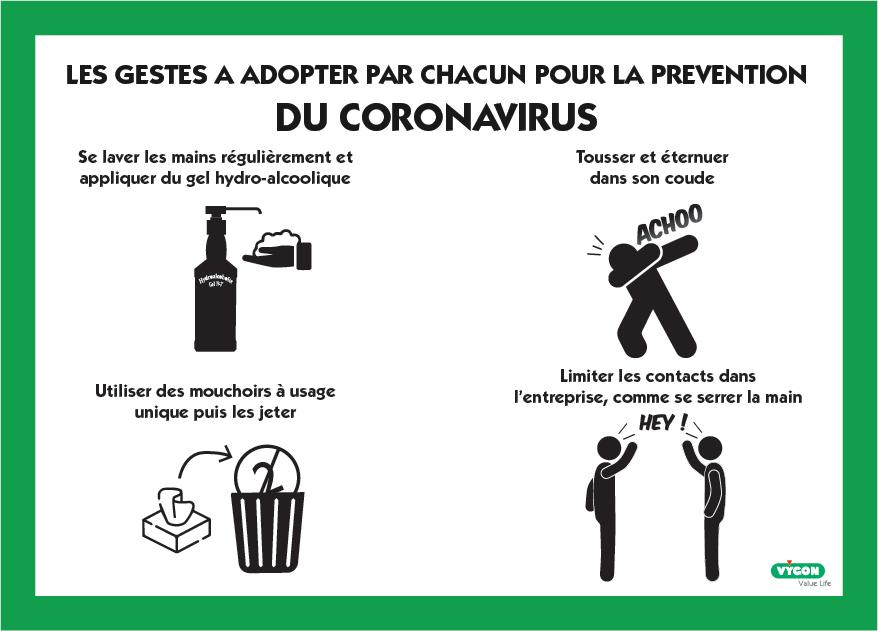
3 minute read
COVID-19
C O V I D - 1 9
Our company and the COVID-19 pandemic
Advertisement
A COVID-19 committee was set up at the beginning of March 2020 to coordinate the development of business continuity plans (BCPs), disaster recovery plans (DRPs), follow them up and decide on any measures to be taken in response to pandemic-related developments. Between March 2020 and June 2021, there were eight versions of the BCP and one DRP to respond to different health protocols and ensure employee safety.
Personal protective measures
Employees were informed about personal protective measures through a widespread communication campaign (posters, screens, Workplace, etc.). Hand sanitiser dispensers were installed at the entrances to buildings and in common areas (toilets, cafeterias, meeting rooms, open-space areas, etc.). Disposable cups were eliminated. Floor and furniture markings were introduced to clearly indicate social distancing rules to be observed. Plexiglass panels were installed in reception areas. Capacity limits were put in place in shared spaces. Cleaning of high-touch surfaces was increased to several times a day. A disinfection protocol was drawn up for swift decontamination after identification of a suspected or confirmed case of Covid-19. From April, employees working on site received a supply of disposable masks while sales teams received surgical and/or FFP2 masks.

C O V I D - 1 9
Business continuity
The first BCP identified the company's crucial operations and the resources required to maintain them. Factory and laboratory activities were maintained and redirected to medical devices used to treat Covid patients. Insofar as possible, all employees worked from home. At head office, our customer service department and distribution centre also maintained an on-site presence to provide customer support and ensure product delivery. To maintain pleasant working conditions, the company funded 50% of a remote work package comprising a monitor, a keyboard and a USB hub. Employees were also able to avail of a very attractive price on an office chair for home. The digital transformation work already initiated by the IT department facilitated remote working through tools such as "Zscaler" or "Teams". To limit the flow of workers at the company's premises and in public transport outside of lockdown periods, work arrival and departure times were extended without compromising the observance of daily and weekly working hours. The shuttle bus that usually runs between Ecouen railway station and the Vygon/SIPV site was maintained and redeployed during the first lockdown to assure the home-work commute for certain employees who no longer had any transport solution.
Adapting to the situation
Internal activities or events were suspended or cancelled: sport at work, osteopathy, quality of life at work sessions, Christmas meal, New Year ceremony, etc.). During lockdowns, the company cafeteria was closed. Employees working on site were given a meal allowance. To offset the cafeteria closure, food trucks set up in the company car park twice a week. This initiative not only provided an alternative catering solution but also supported local businesses. Intra- and inter-company training on site was mostly replaced by distance learning. Despite the difficult context, a lot of communication took place on Workplace enabling employees to stay in touch.
Volunteering and assistance
Assisting others is a core value at Vygon. Several of our employees provided assistance during the first lockdown, whether internally to help with our main activities, i.e. manufacturing and shipping our products, or in healthcare facilities where our sales representatives who had previously worked in the medical sector provided assistance.
Covid bonus
A bonus of €1,000 was paid out to reward employees working on site, corresponding to a total amount of €500,000.




